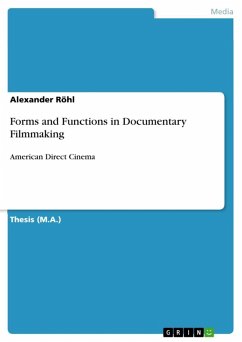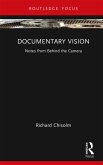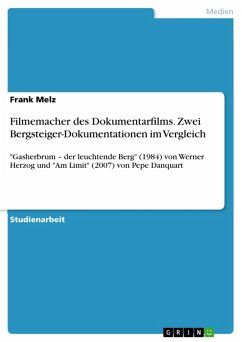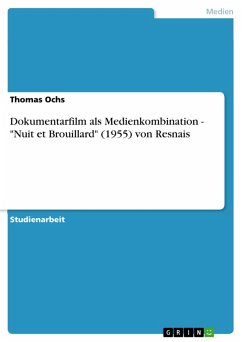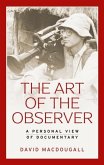Thesis (M.A.) from the year 2008 in the subject Film Science, grade: 1,3 , Humboldt-University of Berlin (Anglistik und Amerikanistik), language: English, abstract: The subject of this paper is documentary film and Direct Cinema as a particular movement in documentary history. Direct Cinema emerged as an innovative form of filmmaking in the United States in the early 1960s, using new technologies and revitalizing documentary in a break with both traditional forms of both documentary and classical Hollywood cinema. Direct Cinema developed an observational filmmaking method that relied on giving up control by minimizing the filmmakers' intervention before and during the shooting, with no preconceptions of the finished product. The methods the filmmakers employed drew on realist techniques such as long takes and free-moving cameras, promoting an uncontrolled documentary of immediacy and focusing on the reality effect of the moment of shooting. The result was expressive footage, for which the filmmakers developed a form of representation that relied on the inherent continuity of the filmed event, avoiding the narration and interpretation common to traditional documentary films.
Dieser Download kann aus rechtlichen Gründen nur mit Rechnungsadresse in A, B, BG, CY, CZ, D, DK, EW, E, FIN, F, GR, HR, H, IRL, I, LT, L, LR, M, NL, PL, P, R, S, SLO, SK ausgeliefert werden.

